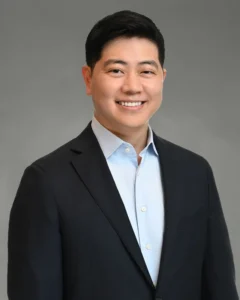
Our Baby: Lesbian Couples Partner to Make Babies with Reciprocal IVF at our San Antonio Fertility Center
Drs. Munch and Hudson make baby dreams come true for LGBT couples throughout South Texas thanks to new and innovative family building methods. This is especially exciting for lesbian couples that want to share a biological connection with the new baby in their lives. Reciprocal IVF gives both partners the opportunity to be physically involved in building their family, making it a popular lesbian family building option.
Both Partners Play an Essential Role with Reciprocal IVF
Reciprocal IVF means that one of the female partners contributes her eggs for fertilization with donor sperm, which creates an embryo. This partner is called the donor. The embryo is then transferred to the other female partner to carry the pregnancy. This partner is called the surrogate. Reciprocal IVF allows both women to participate in the conception process.
With our reciprocal IVF program we guides couples through all of the steps to join donor sperm with one partner’s egg. Conception takes place outside of the uterus in our specially-designed, high-performing IVF lab. The embryo (or embryos) are then transferred into the surrogate partner’s uterus to implant and begin pregnancy.
IVF in Lesbian Couples Starts with Egg Retrieval
The first step is to make sure that both women’s health will support reciprocal IVF. There are FDA regulations to follow to ensure the health of both partners and their future baby – even when the surrogate is the woman’s partner. These safeguards include a comprehensive medical history, physical examination, blood testing, and screening for familial, genetic and infectious diseases.
After this screening process, the woman will undergo the same process that takes place during our San Antonio Fertility Center’s regular IVF procedures.
- Our fertility specialists stimulate the ovaries with fertility medications to ensure access to a good supply of eggs. During this stage, we closely monitors follicular growth with sonograms in our Stone Oak fertility center and IVF lab
- The eggs are then retrieved in a minimally invasive procedure with general anesthesia.
- Our IVF lab then combines (donor) sperm and the retrieved eggs to create viable embryos.
- we then transfer the best quality embryos into the surrogate partner for implantation.
Whose egg? Whose uterus? Deciding who should be the donor and who should carry the baby
When our lesbian patients decide to use reciprocal IVF to start or add on to their family, We ask them to spend some time considering who will take which role. There is no one-size-fits-all answer for lesbian couples. Some of the factors couples should consider are:
- Maternal age: We know that younger eggs are healthier and have better IVF success rates. Fertility starts to decrease significantly at age 35.
- Fertility status: Women with certain medical conditions that affect the reproductive cycle or structure, or those who have had unsuccessful fertility treatments in the past, will want to discuss the best course with our fertility specialists.
- Multiple pregnancies:Some couples know from the start that they will want more than one child. If both partners want to experience pregnancy, and have reason to believe they both could successfully carry a pregnancy, then decision-making often centers around which partner should “go first.”
Drs. Munch and Hudson are thrilled to be on the leading-edge of fertility solutions for lesbian couples. The lesbian families we’ve helped build through our reciprocal IVF program at our San Antonio Fertility Center are a strong testament to our commitment to bring babies into the lives of all types of hopeful families in South Texas. Contact to schedule an appointment to discuss the best path forward for lesbian family building.



